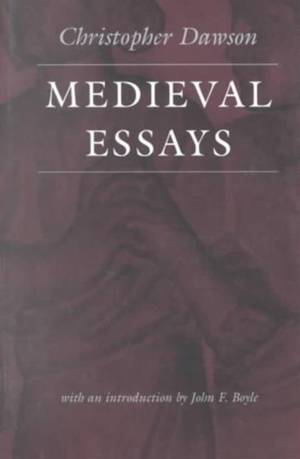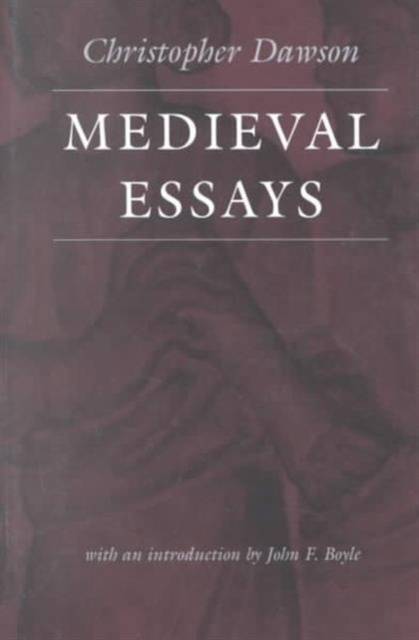
- Retrait gratuit dans votre magasin Club
- 7.000.000 titres dans notre catalogue
- Payer en toute sécurité
- Toujours un magasin près de chez vous
- Retrait gratuit dans votre magasin Club
- 7.000.0000 titres dans notre catalogue
- Payer en toute sécurité
- Toujours un magasin près de chez vous
Description
No one who would seek to think deeply about the Middle Ages and its role in the formation of the modern world may neglect this book. There is simply no other like it.
Medieval Essays is the mature reflection of one of the most gifted cultural historians of the twentieth century. Christopher Dawson commands the substance and the breadth of cultural history as few others ever have. He ranges from the fateful days of the late Roman Empire to the final destruction of Byzantium, from the rise of Islam to the flowering of western vernacular literature, from missions to China to the caliphs of Egypt, from the tragedy of Christian Armenia to complex religious realities of Christian, Jewish, and Muslim Spain, from philosophy to literature, theology to natural science. The very breadth of his canvas makes the precision of his judgments and the vitality of his analyses all the more remarkable.
PRAISE FOR THE ORIGINAL EDITION:
The Times Literary Supplement said of the original edition: "These essays, though concerned with topics derived from a remote past, are designed to display the relevance of those topics to the problems and controversies of the present." The judgment is yet truer today. Few, if any, studies of the Middle Ages are more significant for understanding the cultural dynamics of the twenty-first century. Fortunately, few are as readable, illuminating, or challenging.
"Count it a blessing that the works of Christopher Dawson are now being reissued on a regular basis. Dawson, who died in 1970, wrote with a grace of style, breadth of knowledge, and courage to generalize in defense of the proposition that there is such a thing as Christian civilization, and that we cannot understand our modern moment apart from Christendom. . . . Dawson is among the most sure cures for the disease of historical amnesia."--First Things
"Dawson is the historian of culture with his eyes ever surveying the whole historical process, marking the great changes, and interpreting their significance."--Spectator
"A handy sampler of Dawson's view of history. He writes with the smooth mixture of clarity, scholarship and happy metaphor that characterizes good British historians, and the imperturbability of a man content with a limited patience."--Time
Spécifications
Parties prenantes
- Auteur(s) :
- Editeur:
Contenu
- Nombre de pages :
- 240
- Langue:
- Anglais
- Collection :
Caractéristiques
- EAN:
- 9780813210179
- Date de parution :
- 03-04-02
- Format:
- Livre broché
- Format numérique:
- Trade paperback (VS)
- Dimensions :
- 143 mm x 218 mm
- Poids :
- 367 g

Les avis
Nous publions uniquement les avis qui respectent les conditions requises. Consultez nos conditions pour les avis.






